Zero-Click Searches: What You Need to Know – SEO News
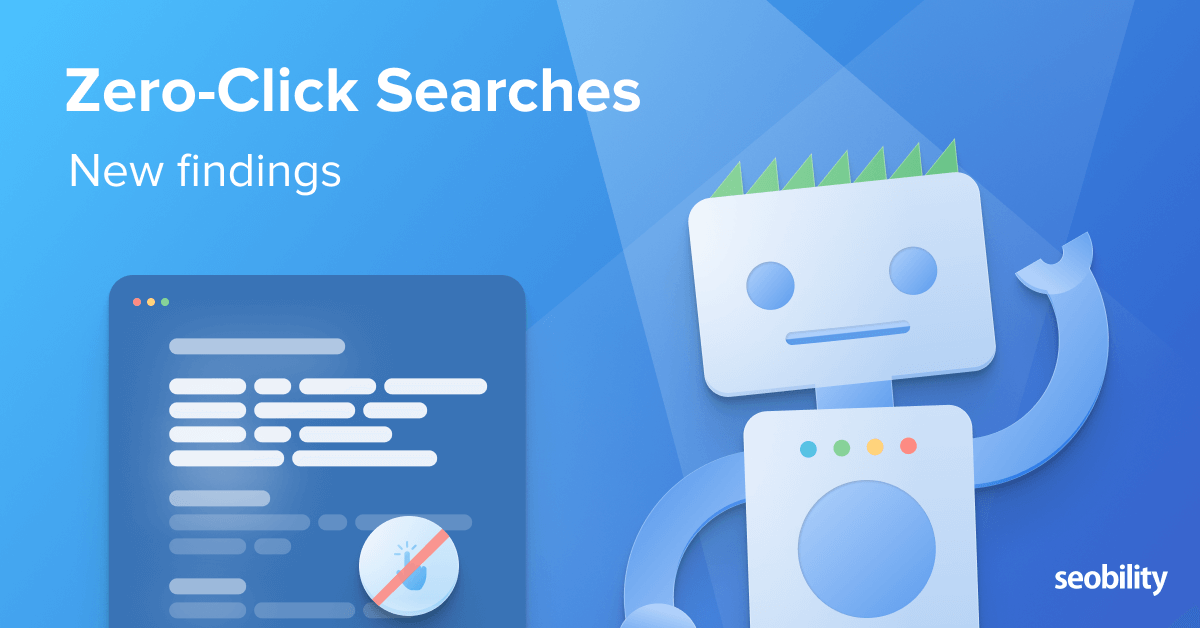
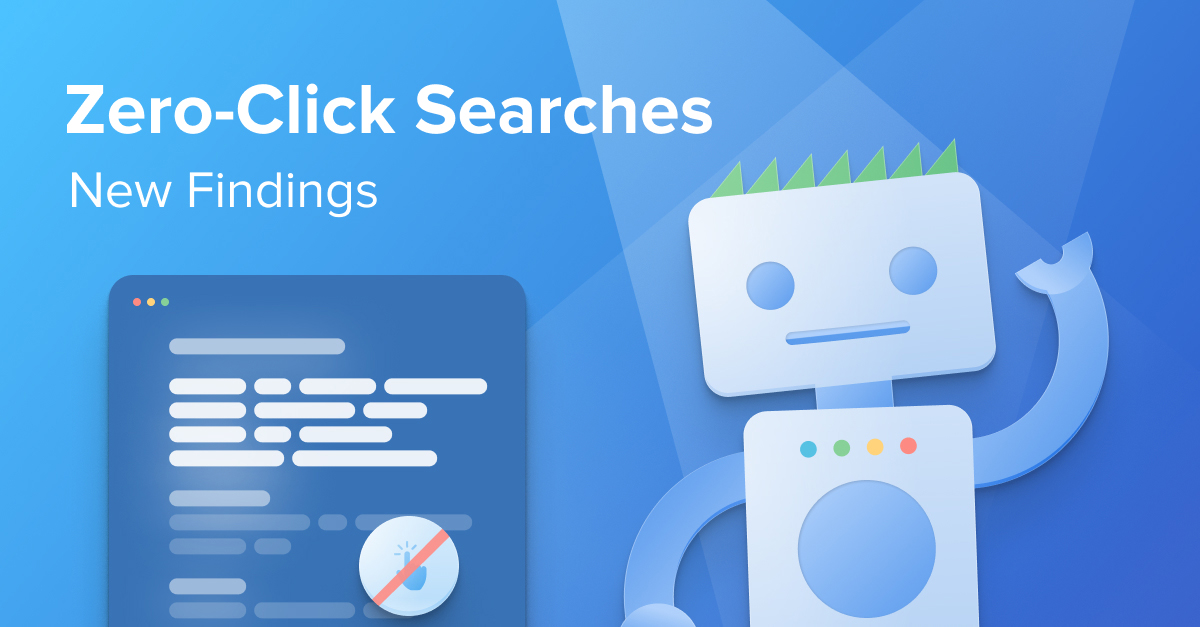
On March 22, Rand Fishkin published data at SparkToro that sent shockwaves through the SEO world. His conclusion: zero-click searches surged in 2020, now making up two-thirds of all Google searches.
In his analysis of recent data from SimilarWeb, Fishkin explains:
“In August of 2019, I published research from now-defunct clickstream data provider, Jumpshot, showing that 50.33% of all Google searches ended without a click to any web property in the results. From January to December, 2020, 64.82% of searches on Google (desktop and mobile combined) ended in the search results without clicking to another web property. That number is likely undercounting some mobile and nearly all voice searches, and thus it’s probable that more than 2/3rds of all Google searches are what I’ve been calling ‘zero-click searches’.”
In this article, we’ll look at what zero-click searches are, what the research says about them, and the steps you should take as they become increasingly common.
What Are Zero Click Searches?
Over the last few years, Google has steadily built a range of features into its search results designed to help people get their answers without leaving the search page. These search features help users get answers fast, and they work to Google’s benefit by creating a better user experience that provides more of the information users are looking for within Google without the need to click out to third-party sites.
When answers are provided directly within search results, this can result in a zero-click search.
Some of the most common types of zero-click searches include:
Definition searches, when Google provides the meaning or correct spelling for a word:
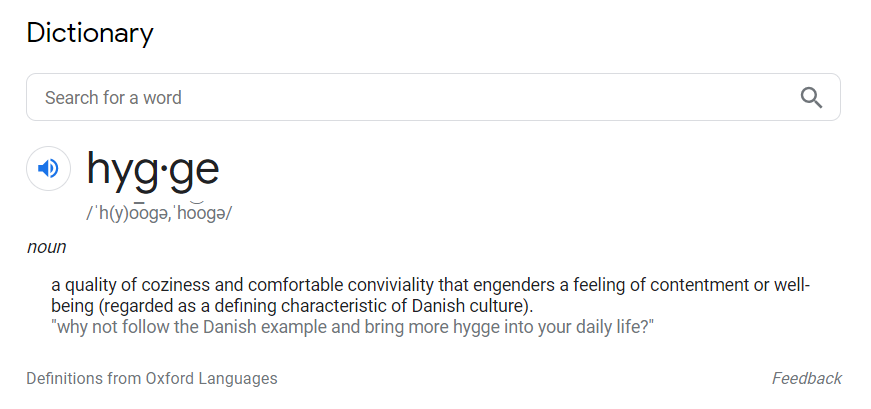
Searches for specific destinations, when Google shows the exact locations on a map:
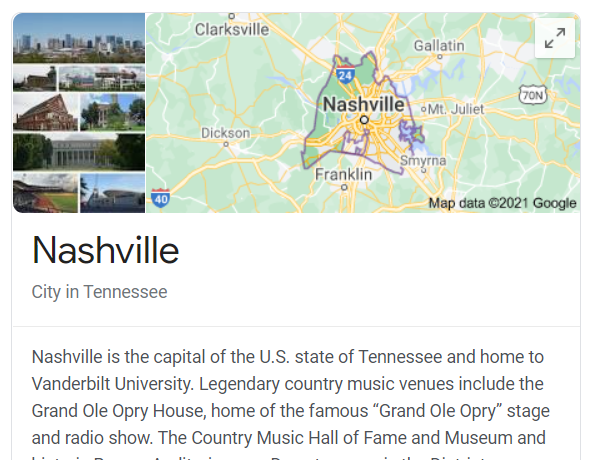
Instant answer searches that require quick answers to questions typed into Google:
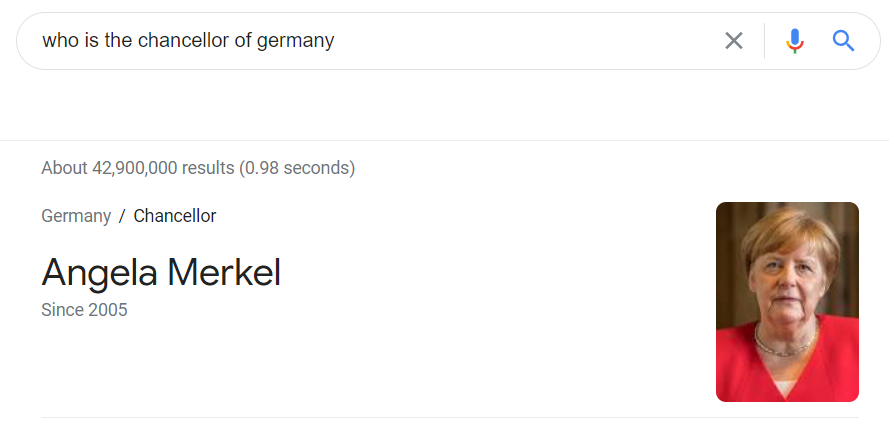
Searches for companies or persons, in which Google pulls together information into a Knowledge panel:

Searches that can be answered with Featured snippets, which surface short extracts from articles and blog posts:
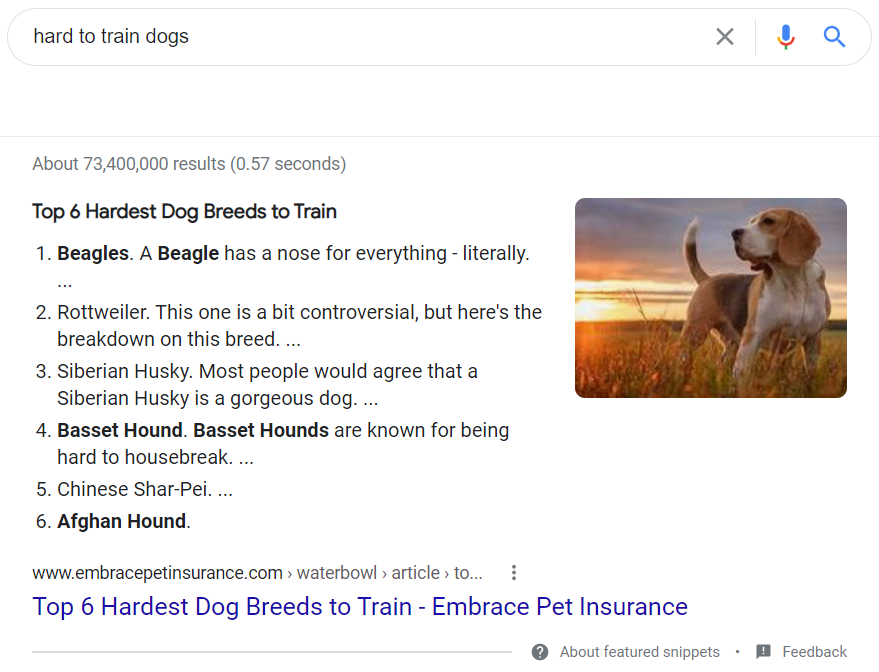
Other specific searches, such as the search for a calculator, where Google provides a tool that can be used to handle basic math computations directly from page one of the search results:

What Does The Research Say About Zero Click Searches?
Fishkin’s article was based on a new analysis of roughly 5.1 trillion Google searches conducted in 2020. Some highlights from this data include:
- 64.82% of searches ended without a direct follow-up click to another website
- 1.59% of searches resulted in clicks on paid search results
- 33.59% of searches resulted in clicks on organic search results
- Searches that ended in clicks were much higher on desktop devices (50.75% organic click-through rate)
- Zero-click searches were much higher on mobile devices (77.22%)
While the data are compelling, it’s important to note that SimilarWeb’s data is slightly different from the 2019 data Fishkin references, which came from Jumpshot. Most importantly, the 2020 data is worldwide, while the 2019 data is US-only. SimilarWeb also combines both mobile and desktop devices, while the Jumpshot study measured browser-based traffic only.
What Is Google Saying About The Research?
On March 24, Danny Sullivan, Google’s Public Liaison for Search, responded to Fishkin’s key claim that the majority of searches end without sending someone to a website.
“This claim relies on flawed methodology that misunderstands how people use Search,” Sullivan said. “In reality, Google Search sends billions of clicks to websites every day, and we’ve sent more traffic to the open web every year since Google was first created. And beyond just traffic, we also connect people with businesses in a wide variety of ways through Search, such as enabling a phone call to a business.”
As an example, Sullivan cited rephrased queries, noting that people don’t always know what they need to search for in order to get the results they want. For example, someone might search for “coffee” and then, after looking through the results, do a more specific search for “fair trade coffee delivery.”
Sullivan also pointed to features Google has built to provide quick answers for users, like weather forecasts, sports scores, and Google My Business listings. According to Sullivan, “these results are helpful for users, and part of our ongoing work to make Google Search better every day.”
What Are SEOs Saying About The Research?
As of early 2021, Google has over 92% of the global market share in the search space. Fishkin’s concerns were echoed by other SEOs who worry that Google is using its dominance in the search space to reduce organic click-throughs and answer more user questions on-site.
Many SEOs asked for a more detailed breakdown of the data in order to better understand what types of searches are generating zero-click results:
Interesting, were searches for weather, scores, etc. included in the data? There are a ton of searches like that for obvious reasons (& people just want a quick answer). Would be great to see the breakdown for zero-click searches. Does SimilarWeb have that breakdown?
— Glenn Gabe (@glenngabe) March 22, 2021
Writing in Search Engine Land, Barry Schwartz urged SEOs to look past the debate and focus on how to help users.
“The truth is, I believe the study that was presented by Rand Fishkin told the story Rand wanted to tell. The response Google had told the story Google wanted to present. Both are honestly wrong and not telling the full truth.
Google’s goal is to satisfy the searcher and we search marketers don’t always think about it from the searcher’s perspective… So don’t read a blanket study about how evil Google is and take it at face value and, at the same time, don’t read Google’s official response and take that at face value. There is a middle ground. As search marketers, we have to focus on how to get the best and most useful traffic to our customers and focus less of our time on complaining about who is right or wrong.”
We agree with the call to focus on getting information to customers. But it’s critical to remember that Google profits disproportionately from the growing number of zero-click searches. Having answers available to users directly on search results pages is a great way to satisfy search intent — but Google couldn’t do it without drawing information from third-party sites.
What Steps Should You Take?
With zero-click searches on the rise, it’s time to assess their impact for your business and consider adjusting your strategy:
Research your relevant search queries to estimate zero-click probability. It has been critical for years to analyze Google’s SERPS to find out what kind of content Google sees as relevant. This type of research is more important than ever. Look through Google’s SERPs to evaluate the presence of zero-click search features. Grabbing a top spot in the rankings is less valuable if it’s a zero-click result, so consider this factor when performing keyword research and evaluating the traffic potential of a topic.
Optimize your content for Google’s search features. Yes, you heard it right. We might not like the game, but we still need to play it. Google’s new search features are on the rise, so completing your Google Business profile, optimizing your content for featured snippets and adding schema for rich snippets will help you get your content featured on Google’s SERPs. Even if users don’t ultimately click through that much anymore, you want to maximize your share of what’s left. Above all, be reasonable. Keep in mind your return on investment, and don’t go to great lengths for search placements that aren’t worth the effort.
What are your thoughts on this development? Share your opinion with us below!
PS: Get blog updates straight to your inbox!
Source link : Seobility.net



